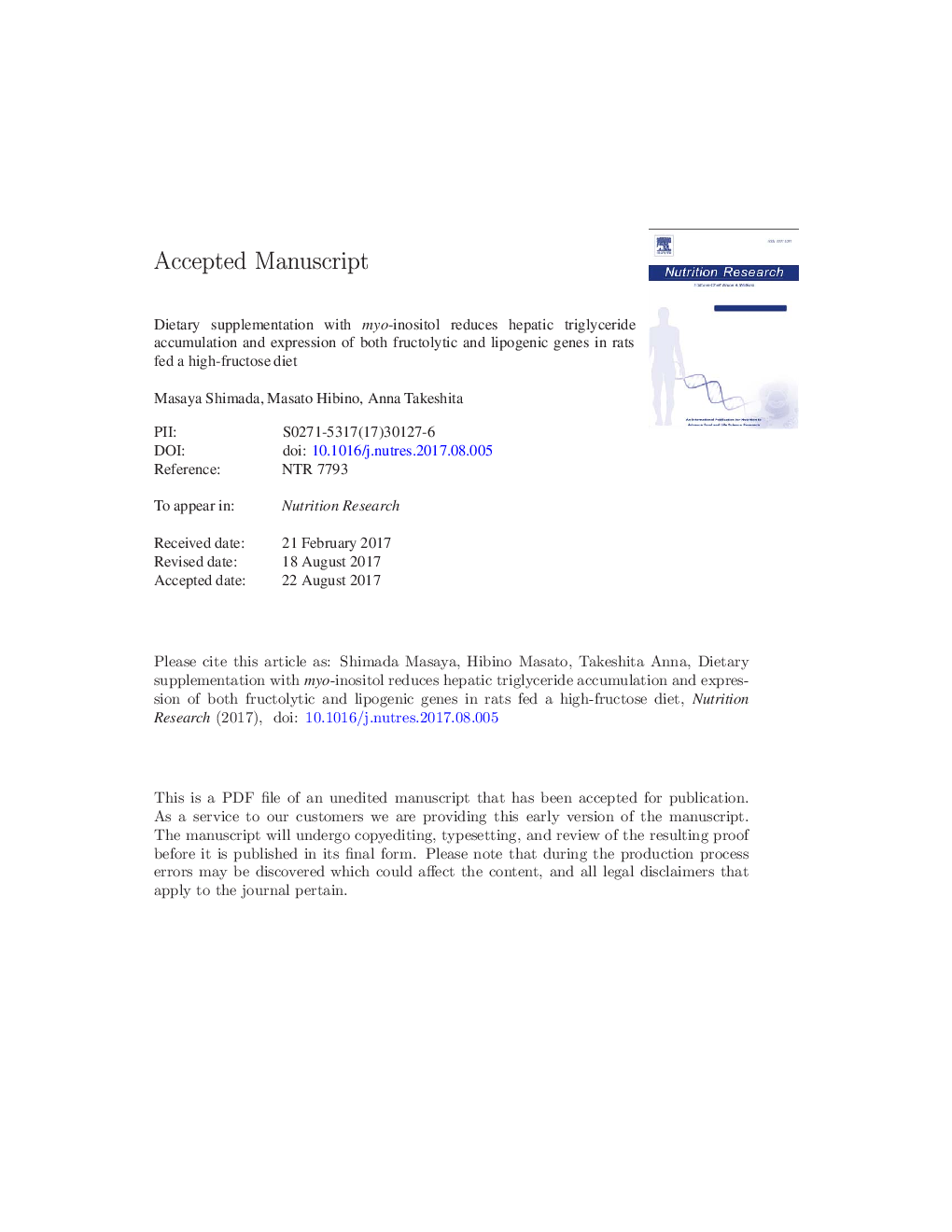| Article ID | Journal | Published Year | Pages | File Type |
|---|---|---|---|---|
| 5588578 | Nutrition Research | 2017 | 32 Pages |
Abstract
Excessive fructose ingestion drastically enhances hepatic lipid accumulation. The most prominent form of inositol-myo-inositol (MI)-remarkably reduces high sucrose-induced hepatic triglyceride (TG) accumulation. Because MI is a major and strong lipotrope, we hypothesized in this study that MI improves fatty liver more induced by excessive ingestion of fructose than sucrose. Rats were fed a high-glucose diet (HGD), a high-fructose diet (HFD), or an HFD supplemented with 0.2% MI for 12 days. Hepatic levels of TG and mRNAs for fructolysis (ketohexokinase and aldolase B), lipogenesis (pyruvate kinase, liver, and RBC; glucose-6-phosphate dehydrogenase; acetyl-CoA carboxylase alpha; fatty acid synthase; and stearoyl-CoA desaturase 1), and a key transcription factor for lipogenesis-carbohydrate-responsive element-binding protein-were significantly increased in the HFD group compared with the HGD group, and the increase was markedly decreased by MI supplementation. Similarly, HFD-induced pyruvate kinase, liver, and RBC and fatty acid synthase protein levels in the liver were reduced by MI treatment. On the other hand, hepatic levels of mRNAs for β-oxidation (acyl-CoA synthetase and carnitine palmitoyltransferase 1a) did not differ among the 3 groups. Taken together, this study showed that MI supplementation decreases the expression of fructolytic/lipogenic genes and lipogenic proteins as well as TG accumulation in high fructose-induced fatty liver in rats.
Keywords
ACSACACASCD1SREBPChREBPG6PDHGDGLUTPBS-TALDOBKHKCpt1aHFDFASacyl-CoA synthetaseAldolase BStearoyl-CoA desaturase 1acetyl-CoA carboxylase alphafatty acid synthasetriglycerideGlucose transporterHigh-fructose dietMyo-inositolSterol regulatory element-binding proteincarnitine palmitoyltransferase 1aFatty liverketohexokinasecarbohydrate-responsive element-binding proteinglucose-6-phosphate dehydrogenase
Related Topics
Life Sciences
Biochemistry, Genetics and Molecular Biology
Endocrinology
Authors
Masaya Shimada, Masato Hibino, Anna Takeshita,
